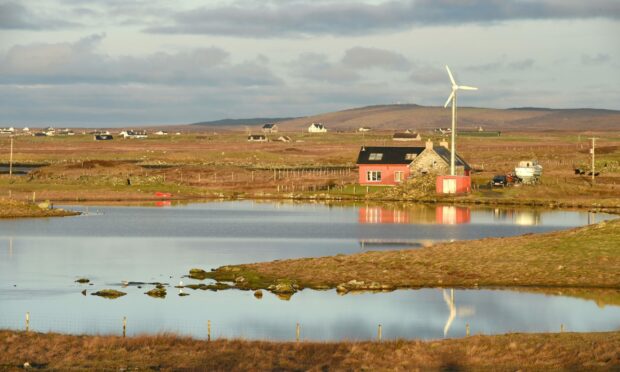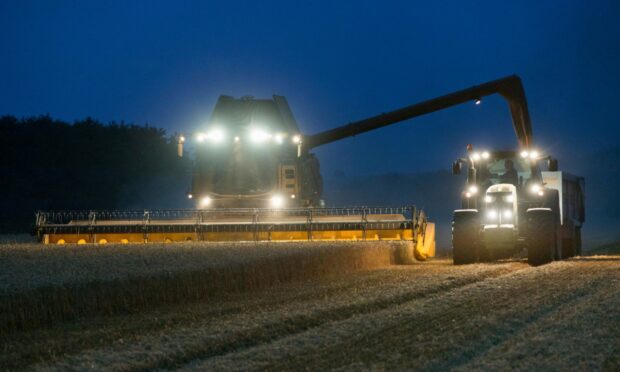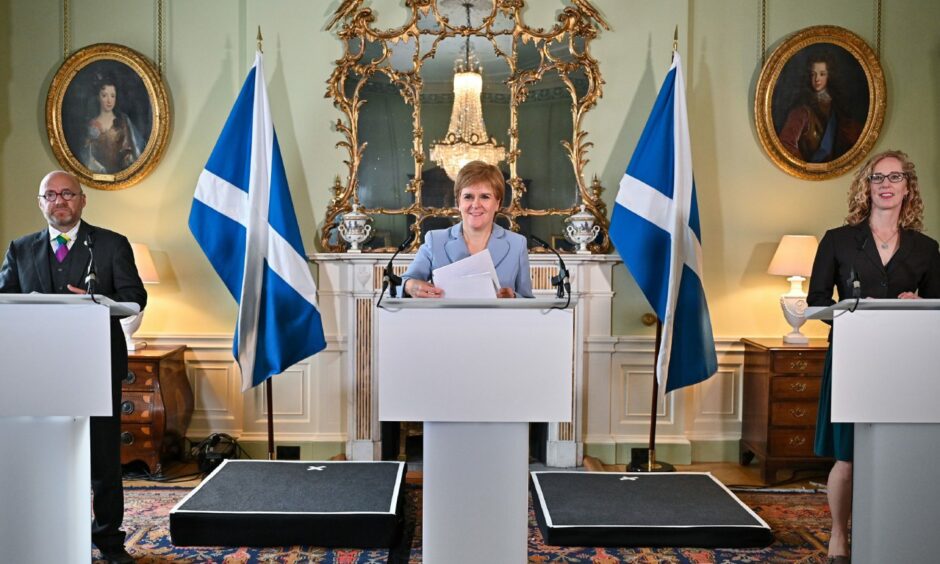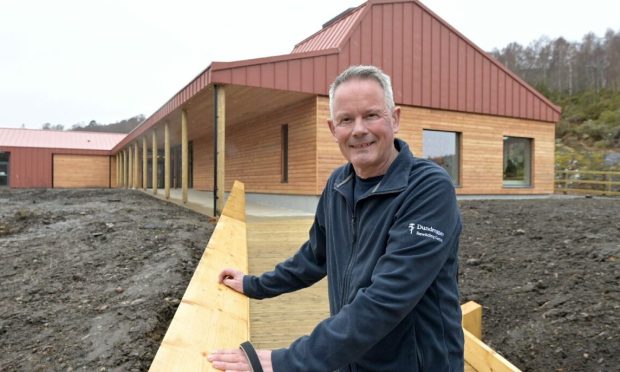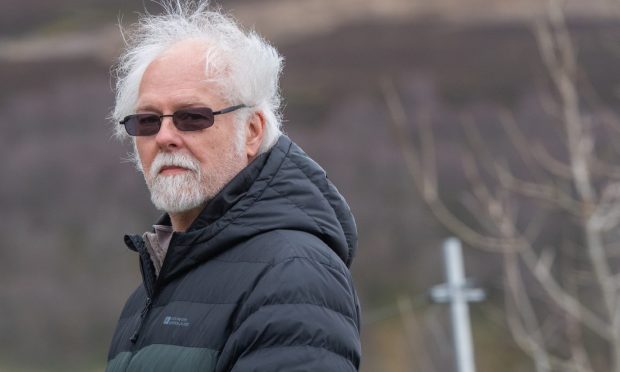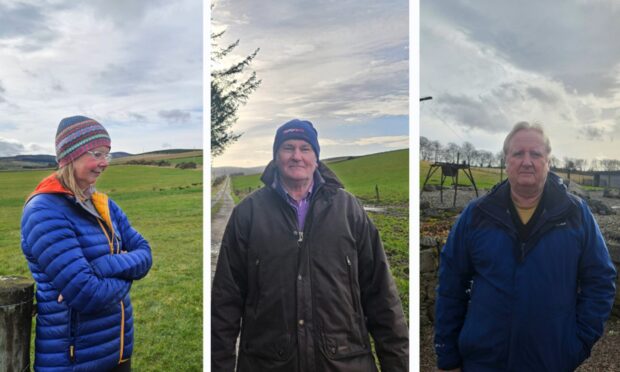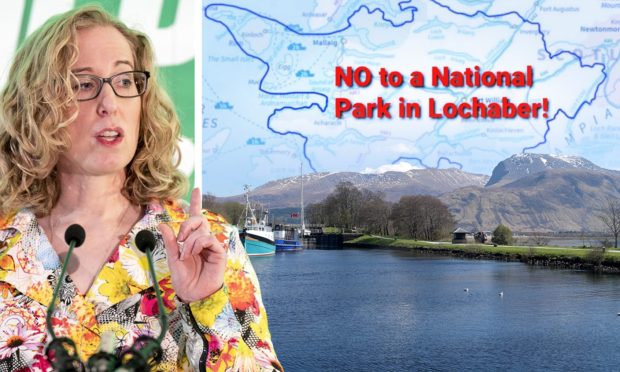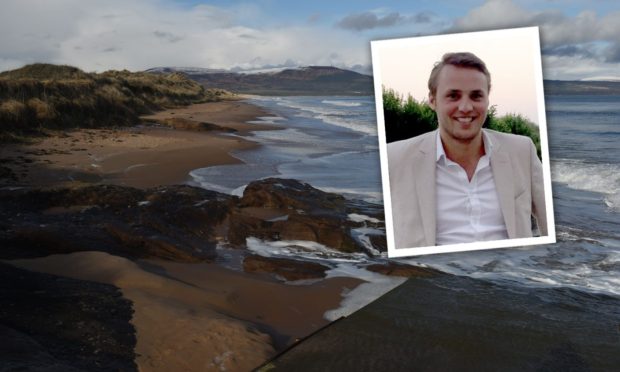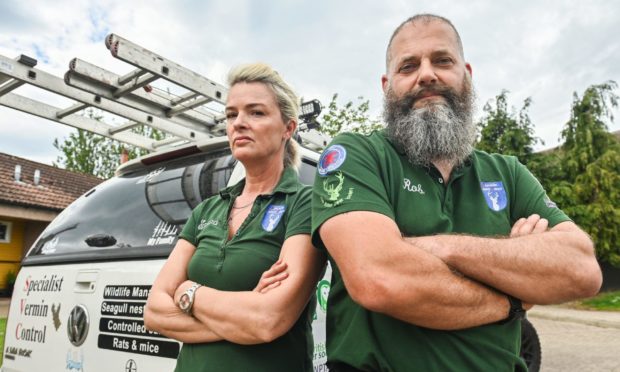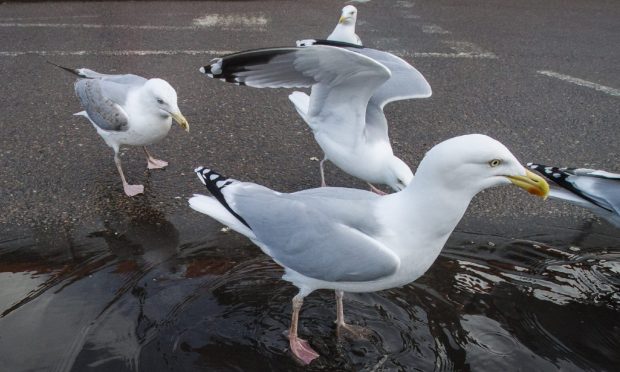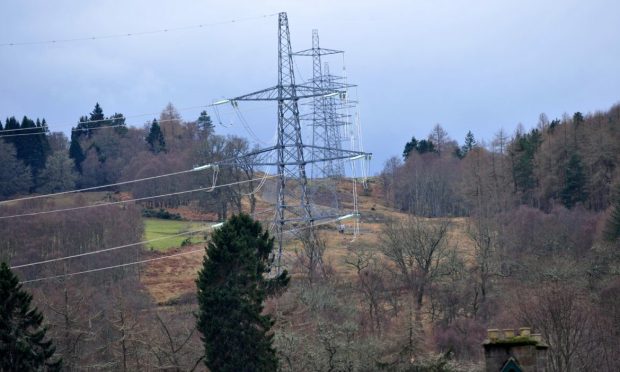Nicola Sturgeon is being urged to adopt a major package of reforms to improve housing, education, energy and business in an environmentally friendly way.
Around 50 experts in their field led talks they hope will shake-up land use and management while helping to rebuild the economy with new jobs.
Their report is published three days after the First Minister announced a new deal with the Green party to run the Scottish Government.
It reignited a fierce debate about policies, including the future of the economy – from the islands to cities and the oil-dependent north-east.
The government shake-up also gave land reform campaigners a lift with a renewed focus on reform.
“Business as usual is not good enough in the times we are living through.”
– Nicola Sturgeon
Gail Halvorsen, from the Scottish Ecological Design Association, which published the new report, said: “Land reform is a welcome core component of the draft co-operation agreement and on Monday, MSPs will receive a copy of our report, a New Vision for Land Use in Scotland.
“The report will set out major changes and improvements to land use in Scotland and we hope all political parties will support the revolution we are proposing.”
Locally produced food for schools
More than 1,200 people took part in the six-week project, including business owners, estate managers, crofters and farmers.
The talks involved experts from the James Hutton Institute in Aberdeen and Dundee, as well as professors from St Andrews University and the University of the Highlands and Islands.
An eight-point plan sets out changes across all walks of life.
It suggests making hospitals and schools use ingredients from local producers where possible.
A new fund, which the report calls a Sustainable Business Innovation Fund, could help kickstart enterprise at a local scale in renewables, food, forestry and energy.
A shift away from highly intensive non-food farming could underpin healthier eating plans, create jobs and help establish more diverse local networks, the group argues.
Energy distribution needs to be “re-thought”, according to the group, with incentives for manufacturers to move closer to source and a “fair price” for users.
Depopulation
Depopulation could be tackle by adding conditions to major land use changes. The report suggests taking those opportunities to release land parcels to registered social landlords at agricultural values in order to build new homes.
Schools should be targeted with a broader education linked to the environment to help foster skills needed in a “green economic recovery”.
Their report asks landowners to include soil analysis, surveys of biodiversity and job impact. Larger landholdings would have to get “climate impact certificates” to detail their CO2 emissions, under the proposals.
Professor Davy McCracken, from Scotland’s Rural College and one of the authors of the report, said: “It is clear that a ‘single policy, single outcome’ approach does not address the needs of rural areas. What is needed urgently is cross-sector policies which are integrated and can deliver across a broad set of issues.
“The Deputy First Minister’s additional role as Cabinet Secretary for Covid Recovery – and especially the responsibility for the coordination of delivery and outcomes across portfolios – will be fundamental to achieving this.”
‘Green lairds’
Meanwhile, all MSPs are being sent a briefing from Community Land Scotland calling for stronger action on climate change.
One week before Holyrood gets back to parliamentary business, the group wants to address Scotland’s heavily concentrated land ownership where a tiny minority owns vast tracts of the countryside.
The campaign is concerned so-called “green lairds” are soaking up public subsidies without enough protection for rural communities and their needs.
Ailsa Raeburn, chair of the group, said: “The Scottish Government and Parliament also need to give serious policy consideration to how the monopoly power of large scale landowners to thwart the legitimate development aspirations of local communities can be curbed. Potentially limiting the scale of such land holdings needs to be part of that policy conversation.”
The SNP-Green deal
Last week, Ms Sturgeon outlined her plans with Green MSPs in her administration – a first for national government in the UK.
Conservatives sounded the alarm about a rapid shift to “extremist” Green party policies, including on North Sea oil and gas, and road projects such as dualling the A96, now under review.
The First Minister said: “The publication of this agreement today undoubtedly marks a historic moment. It recognises that business as usual is not good enough in the times we are living through.”
